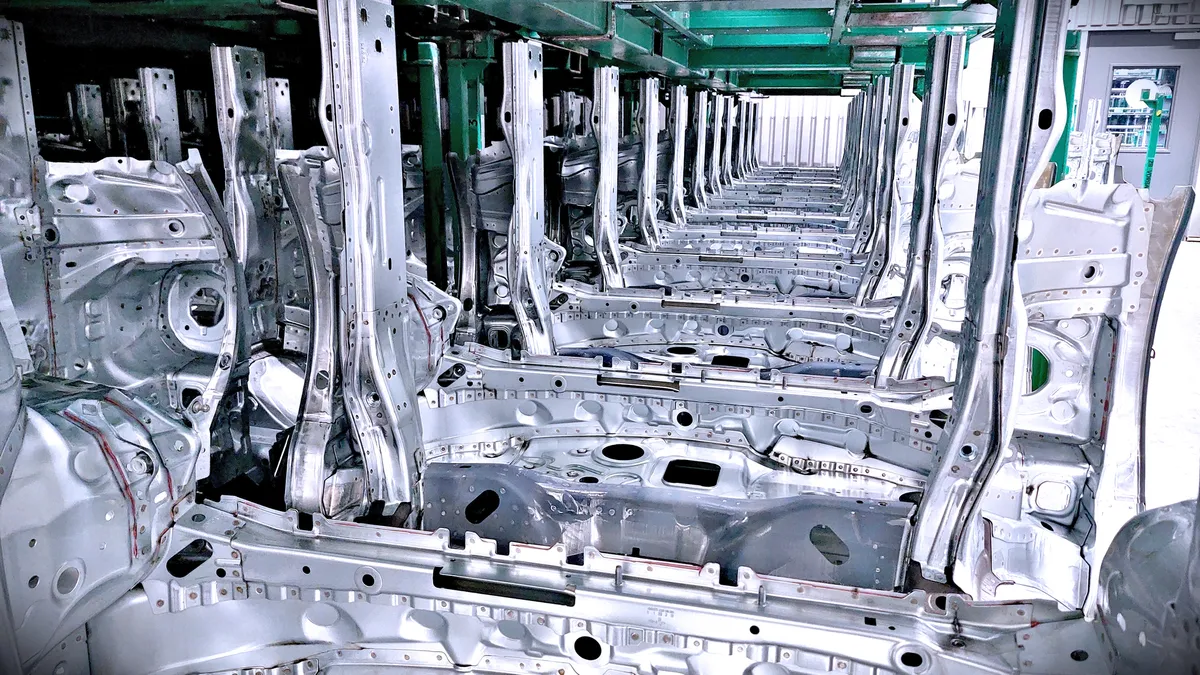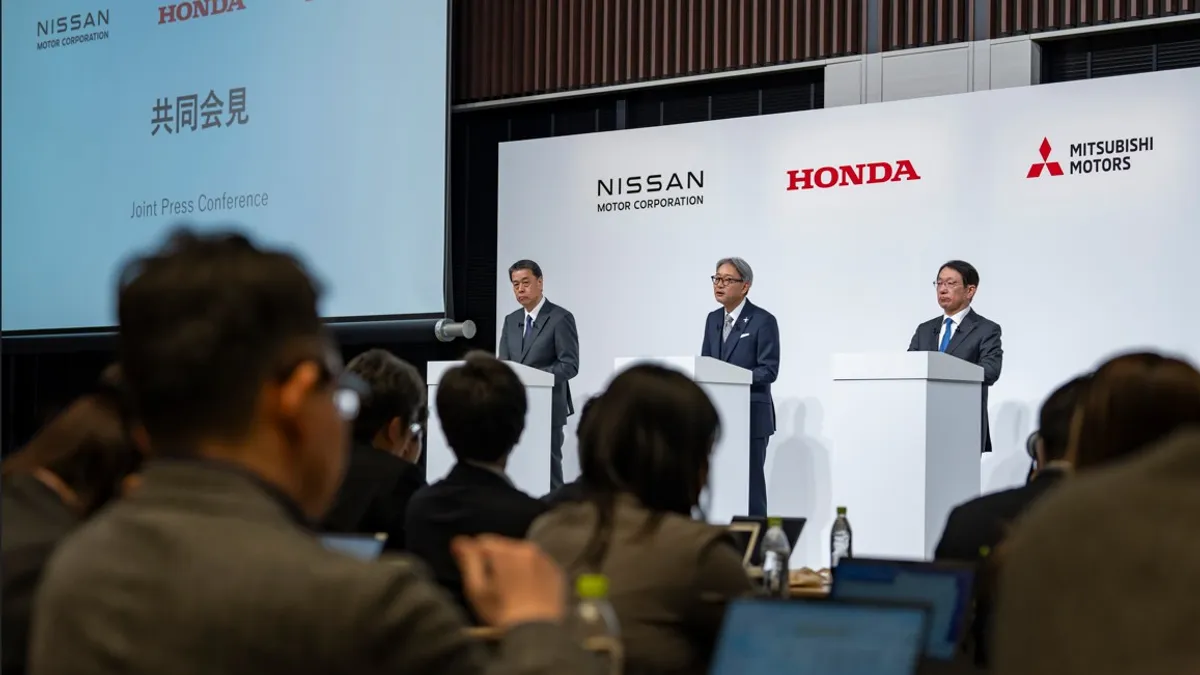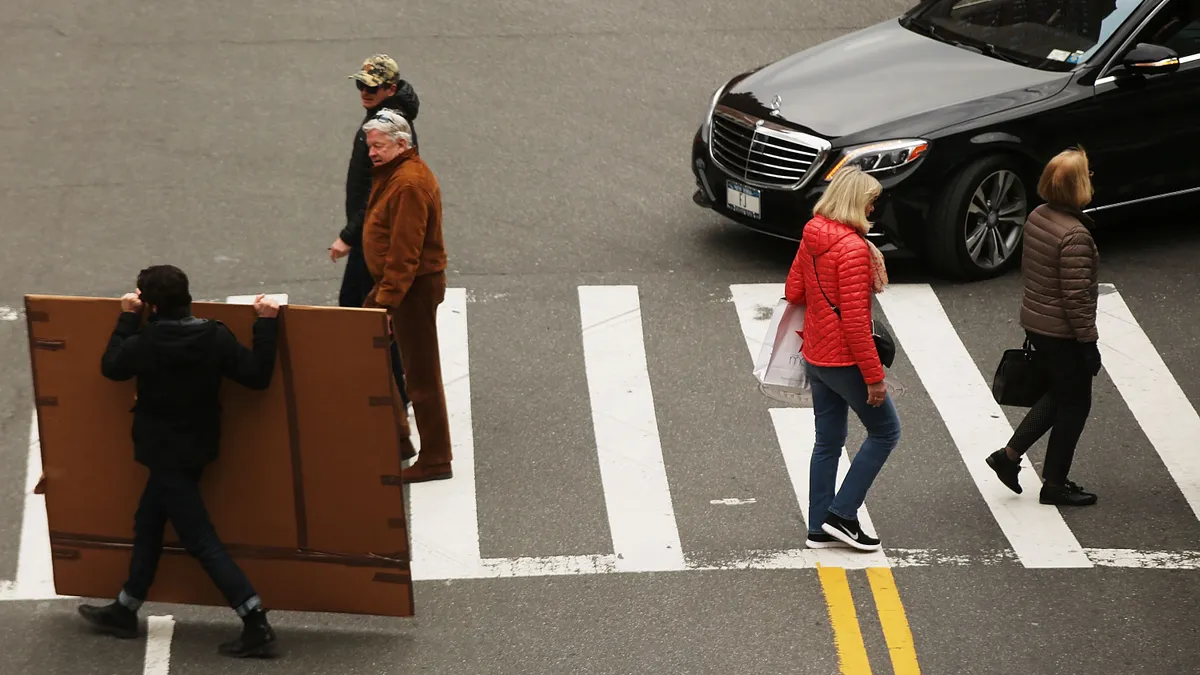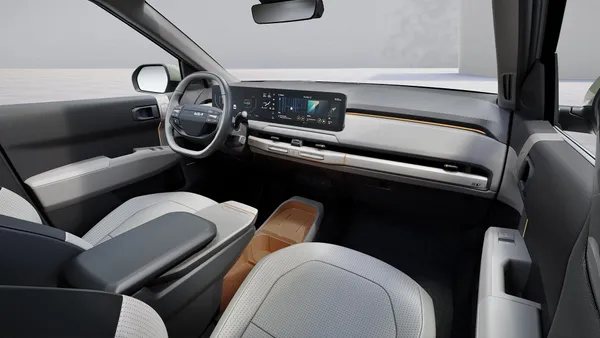Dive Brief:
- Mercedes-Benz aims to use more than 200,000 tons of reduced-carbon-dioxide steel annually, according to a company news release Tuesday.
- European suppliers Salzgitter, Thyssenkrupp Steel, Voestalpine, SSAB and others will supply Mercedes-Benz with more climate-friendly steel.
- By 2030, the automaker aims to slash average CO2 emissions per passenger car by half compared to 2020 as part of its long-term plan to make its new vehicle fleet carbon-neutral.
Dive Insight:
Automotive steel production typically uses immense, carbon-emitting blast and oxygen furnaces, generating more than 2 tons of CO2, on average, to refine 1 ton of final product. To address these environmental concerns, Mercedes-Benz plans to purchase steel that’s refined using more environmentally friendly electric arc furnaces, which can also generate the high heat needed to process steel for vehicle production.
Mercedes-Benz and Thyssenkrupp Steel signed an agreement to use CO2-reduced steel, aiming to make the entire production process nearly carbon-free. Thyssenkrupp plans to commission the first of these greener steel plants in 2026.
“The increased availability of green steel enables us to gradually introduce CO2 reduced steel and in a second step to use almost CO2 free steel in our vehicles, significantly helping to lower our carbon footprint," said Dr. Gunnar Güthenke, head of procurement and supplier quality at Mercedes-Benz Cars, in a statement.
Mercedes-Benz already sources CO2-reduced steel from Salzgitter in Germany. The steel is produced entirely from scrap using an electric arc furnace, which can reduce carbon emissions by more than 60% compared with blast furnaces. Mercedes-Benz has a similar deal with Italy-based Arvedi, which plans to increase the production of CO2-reduced steel for the automaker.
As Mercedes-Benz electrifies its model lineup, the company will use CO2-reduced steel body components and crossmembers supplied by Sweden-based SSAB for its scalable, modular electric vehicle platform, which will be used across several Mercedes-Benz EV models starting in 2026.
Last week, Mercedes-Benz announced an agreement with Sweden-based H2 Green Steel to supply 50,000 tons of nearly CO2-free steel per year to its European stamping facilities. The agreement aims to establish a more sustainable steel supply chain for Mercedes-Benz in North America.
Mercedes-Benz acquired an equity stake in H2 Green Steel in May 2021.












